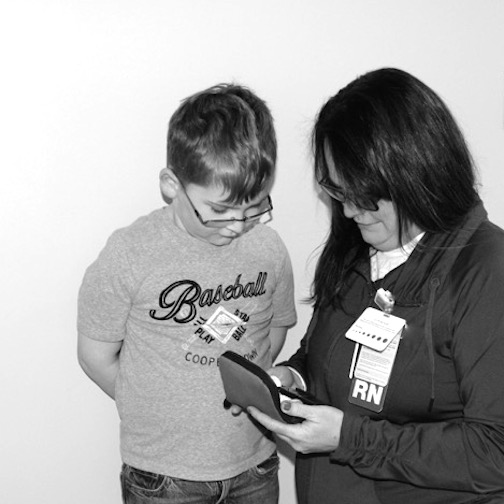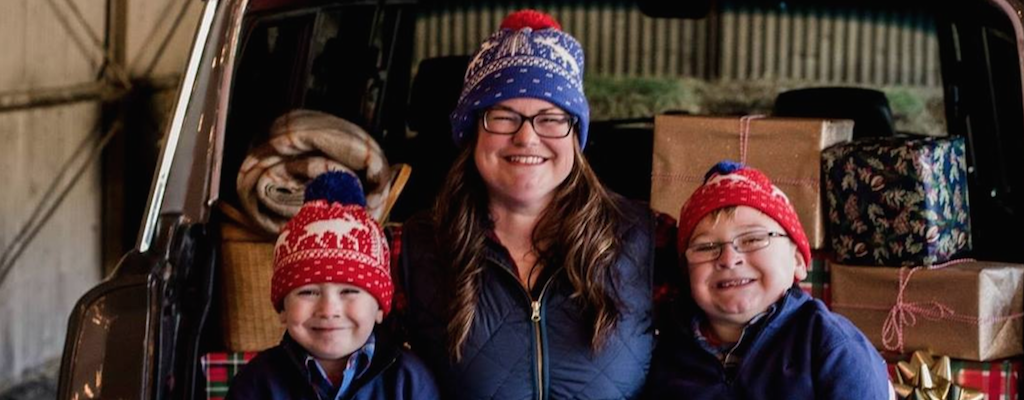A T1D Endo Nurse Helps Families with Diagnosis
 As a type 1 diabetes (T1D) endo nurse, my number one goal has always been to work with kids with diabetes. When I was diagnosed, I remember how big of a shock it was for my family. Even as a 7-year-old, I picked up on the enormity of the situation that was happening around me. As I was going through nursing school, I always pictured myself being there for those kids and their families in that time of pure chaos. I thought, who better to help try to put them at ease than someone who had been in their very shoes.
As a type 1 diabetes (T1D) endo nurse, my number one goal has always been to work with kids with diabetes. When I was diagnosed, I remember how big of a shock it was for my family. Even as a 7-year-old, I picked up on the enormity of the situation that was happening around me. As I was going through nursing school, I always pictured myself being there for those kids and their families in that time of pure chaos. I thought, who better to help try to put them at ease than someone who had been in their very shoes.
I am so happy to be able to work with and be there for these kids and their families. It can get pretty personal with these patients. Once they see my pump and learn that I have diabetes I get a ton of questions. I don’t know how many times I’ve been told, “Wow, you’ve had type 1 for that long? But you look normal.” Or I’ve been asked, “Am I still going to be able to play sports?” I’ve been told that their interactions with me help put them at ease because it shows them that a person with diabetes can be “normal.”
The position I’m in also gives me the opportunity to do lots of education about diabetes. The first thing we always hear after a type 1 diagnosis is “But they’re not overweight.” It really is astounding about how little the public knows about type 1 diabetes. I enjoy teaching (really setting people straight 🙂 ) about the different types of diabetes. Seeing the relief that the patients and families feel once they understand that this is a random diagnosis and not caused by anything they did is special.
Something else that I get to be reminded of daily is how far treatment has come in regards to diabetes. When I was first diagnosed, I was in the hospital for a week. I was started on N and R insulin vials and had to count carbs and calories and eat the same amount at the same time every day. Also, I was taught to have little to no sugar in my diet. Now, kids are only in the hospital for around three days and are started on basal/bolus therapy. They are taught that they can eat whatever they want as long as it’s covered with a bolus. This is huge in making them feel “normal.”
Being exposed to all of the different diabetes issues has also opened my eyes to how big of an effect diabetes can have on mental health. Mental health issues mixed with diabetes and access to insulin can be a dangerous combination. I had never really thought about this piece before. Growing up, I didn’t know anyone else that had diabetes but I had the support of my family through everything. I have learned that it is so important to have a support system in place and have some camaraderie with other diabetics. I know I used to get annoyed when people would ask me how things were going and how I was doing. Now I appreciate those who always did. If you have a friend or family member with diabetes, keep asking and annoying them.
On my unit, we also take care of people with diabetes who are having complications or are recovering from surgery or procedure. Witnessing some of these complications has given me an appreciation for parents of kids with type 1. It makes me appreciate my own parents who somehow managed to raise a college athlete who (knock on wood) was able to avoid any complications or hospitalizations related to diabetes. It also allows me to put myself into the shoes of a parent of a type 1. When the parents are with their kids overnight, I let them know that they can relax and get a good night’s sleep. I am aware of the 24/7 tightrope walk that parents and kids face with controlling and monitoring blood sugars. For the time that their kids are in the hospital, I am happy to be the one to walk that tightrope for them.
Read What to Expect When Expecting a Hospital Stay with Type 1 by Kyla Schmieg.





